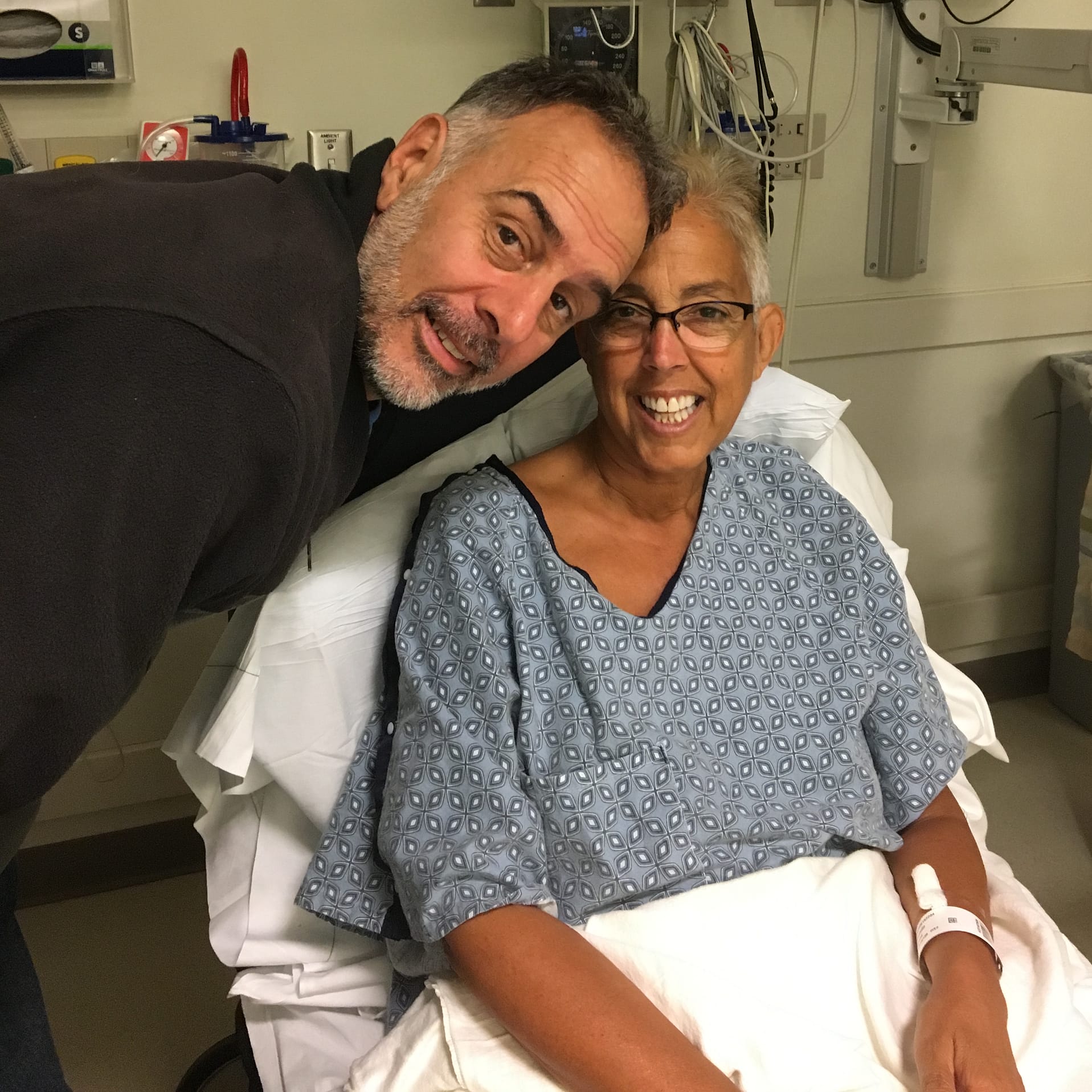
JoAnn shared her story in November of 2021.
The first time I testified before Massachusetts lawmakers on the topic of medical aid in dying, it was in February of 2010, and it felt like I was making a confession, not just offering testimony. I told them about how decades earlier, a dying friend, who had already endured years of living with a degenerative neuromuscular disease, had begged for my help in ending her life. She was on her deathbed and in physical and emotional pain. She had suffered enough and wanted to die peacefully. I didn’t give her the help she begged for and the guilt I felt, and still feel, has haunted me ever since.
On October 1, 2021, I testified to ask for help. In 2017, I was diagnosed with an incurable blood cancer (multiple myeloma). Since then, I’ve undergone high dose chemotherapy and a stem cell transplant. I’ve been on chemotherapy for four years and unless a cure is discovered or better treatments developed, I will likely remain on it for the rest of my life. Because the blood cancer causes lytic lesions or holes in bones, I have fractures in my back and chest and underwent two hip replacement surgeries. Because the chemotherapy weakens one’s immune system, mine cannot readily fight off what a healthy person’s can. In June of this year, I spent almost two weeks in the hospital, followed by months recovering at home from cancer-related pneumonia. During that time, it hurt to breathe, and my lungs are still recovering.
I’m not complaining about any of this, however. I know many other people have it more difficult than I do. I love my life and am grateful for it. I’m grateful for my family and friends who give me the physical and emotional support I need to keep going. I’m grateful for the medical teams at both Dana Farber and Massachusetts General Hospital. I’m thankful for the scientists and pharmaceutical companies who work to develop new treatments to control cancer. They all do tremendous work, but cancer is smart, and my cancer seems to outsmart the drugs faster than my doctors and I would like. Unless a miracle cure or treatment comes along, it is likely I will run out of options some day and die of complications from this disease.
Given this reality, I have been preparing for my death. Finding a nice cemetery plot and writing out my funeral arrangements took a few months. It was not that difficult.
What was much more difficult and took years to figure out was whether or not I believed in God/Spirit, heaven, and eternal life. Never before had I adequately addressed these questions. Never before had I really anticipated my own death. My cancer diagnosis changed that. Over the past four years, I’ve read hundreds of books on death and dying, met with religious directors, spiritual guides, and emotional and energy healers. I learned how to meditate, and started reading poetry for the first time in my life. I learned to live life in amazement and now watch backyard squirrels and ants with as much appreciation as I would formerly bestow only on larger, more majestic creatures viewed on the National Geographic channel. I have forgiven everyone I needed to forgive and asked others to forgive me. I’m one of the many people for whom cancer actually made their life better. I’ve increased my capacity for love, compassion, and joy and developed a relationship with God. And, while I want to stay on this earth for many more years, the thought of transitioning to another life or spiritual form does not scare me. What I do fear however, is the dying process.
While I’m lucky enough to have both my parents still living, many of my close friends witnessed their parents’ death. Several shared stories of watching their mom or dad experience a long, drawn-out death accompanied by pain, even when hospice was involved. They said the only way to alleviate the pain was to keep their loved ones so full of morphine that they lay pretty much unconscious. Often it would take weeks for them to pass and in the meanwhile they seemed to be slowly just rotting away. My friends would sometimes call me during this time and say; “I just want it to be over, I know my mom (or dad) wouldn’t want this. They told me they didn’t want this.”
That is not how I want my final days and hours on this earth to transpire. That is not what I want for me or my family. When death is that close, that imminent, I want to be conscious of my loved ones around me. I don’t want to be on so much pain medication that I’m not aware of my surroundings. As my deceased family members and friends prepare to greet me on the other side of death, I want to be in the arms of my husband, Phil, with my children nearby to wish me well on my journey. To have this love surround me, to have this peaceful transition for myself and my family is not asking too much. It requires only human decency and compassion.
Decades ago, it was my dying friend begging for a peaceful death. Now it is my turn. I implore state lawmakers to pass the Massachusetts End of Life Options Act and enable those of us who are dying to do so in a way that brings us and our families the peaceful transition we deserve.
Mail contributions directly to:
Compassion & Choices Gift Processing Center
PO Box 485
Etna, NH 03750